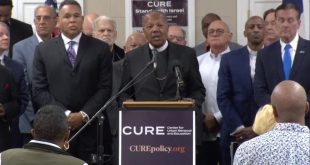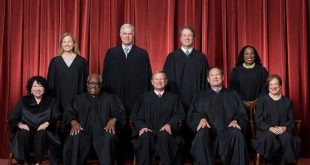 Blaine Adamson, owner of Hands On Originals (HOO) in Kentucky, prints messages on T-shirts and other items.
Blaine Adamson, owner of Hands On Originals (HOO) in Kentucky, prints messages on T-shirts and other items.
After he declined to print “gay pride” T-shirts, the Lexington-Fayette Urban Human Rights Commission claimed that he’d discriminated against homosexuals in violation of the so-called fairness ordinance (PDF).
The circuit court reversed the commission’s ruling, and the commission appealed.
But Adamson prevailed once again. The Kentucky Court of Appeals contended that he didn’t violate the ordinance for refusing to print what he considered a morally objectionable message on a T-shirt. HOO is a public accommodation, not a public forum. The distinction means Adamson can’t refuse service to homosexuals for being homosexuals, but he’s within his rights to engage in “viewpoint or message censorship.”
Adamson said he doesn’t leave his faith “at the door when I walk into my business. In my case, fortunately, the legal system worked.”
One judge in the concurring opinion wrote that he agreed with the majority but would also affirm the trial court’s reasoning based on the Hobby Lobby case. The U.S. Supreme Court ruled that forcing closely held corporations to include abortion drugs in health insurance coverage violated the Religious Freedom Restoration Act.
“I would echo the Hobby Lobby decision to hold that KRS 446.350,6 Kentucky’s Religious Freedom Restoration Statute, offers similar protection against Kentucky laws that substantially burden the free exercise of religion…In the face of the protected religious freedoms afforded to HOO under both the Federal and State Religious Freedom Restoration Acts, and Hobby Lobby, the fairness ordinance is therefore invalid as applied in this case.”
The commission could appeal to the state’s highest court.
Photo credit: Alliance Defending Freedom
 CURE News and Clergy Blog News and Commentary for Christians
CURE News and Clergy Blog News and Commentary for Christians




Adamson said he doesn’t leave his faith “at the door when I walk into my business. In my case, fortunately, the legal system worked.”
I’m glad the legal system worked in his favor. I do wonder if he and his business were targeted to test whether he would print the tee shirts so if he refused, then he would be open to this attack.
I notice the court ruling cited the Religious Freedom Restoration Act. I have to ask, what was wrong with grounding the decision in the First Amendment? Maybe I’m stupid, but I wonder…
I don’t wonder. The history of similar cases is enough to believe ALL such cases are targeting.